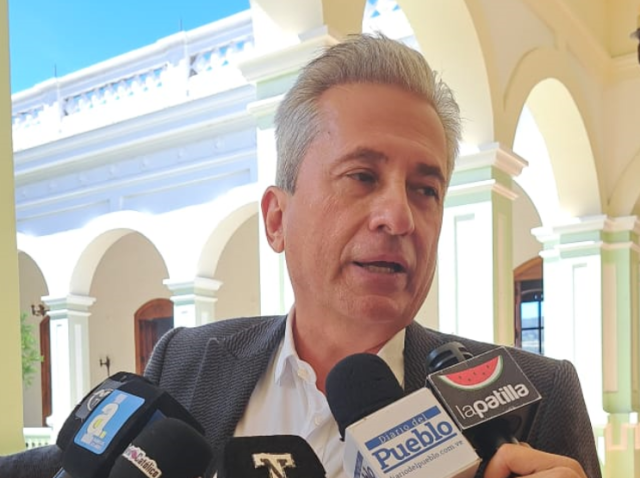
The deputy of the Legislative Council of Táchira State and member of the Unitary Platform, Heriberto Labrador, asserted that in the border region they intend to apply the “Hate Law” to people who denounce the problems of the region.
Anggy Polanco // Correspondent Lapatilla.com
This statement was made when the deputy denounced the situation of the entry of processed poultry without an adequate “cold chain” through the Colombian-Venezuelan border.
He pointed out that by mentioning the disappearance of the protectorate and the now appearance of a “Corporation”, through which imports are carried out, the Hate Law could be applied to him, although this issue is already well known by border customs agents.
“Now the protectorate has disappeared and something called ‘the Corporation’ has appeared (…) They can apply the Hate Law to me, which, by the way, at some point we are going to have to talk about this. Anyone who denounces situations like this is summoned to the Prosecutor’s Office. I have an important case at this very moment, someone who is about to leave the country as a result of this persecution,” he said.
He also said that now anyone can end up summoned by the Prosecutor’s Office, using the power of the State through a body that should be impartial and protect the rights of all, but that is used to curtail them.
He emphasized what is happening in the Prosecutor’s Office where they threaten with the Hate Law, this is why he assured that presently there are two cases in less than a month in which the aforementioned legal text is applied.
He warned that not even he having parliamentary immunity protects him from this situation. However, he said that next week he will be bringing families from the lower part of San Cristóbal, as long as the integrity and safety of the complainants is respected.
“This is very delicate because we make the complaints in the sectors we are called (by the Prosecutor’s Office),” he said.
“What we know is that in Venezuela there is no rule of law whenever something is reported and does not please the government,” added Labrador.

